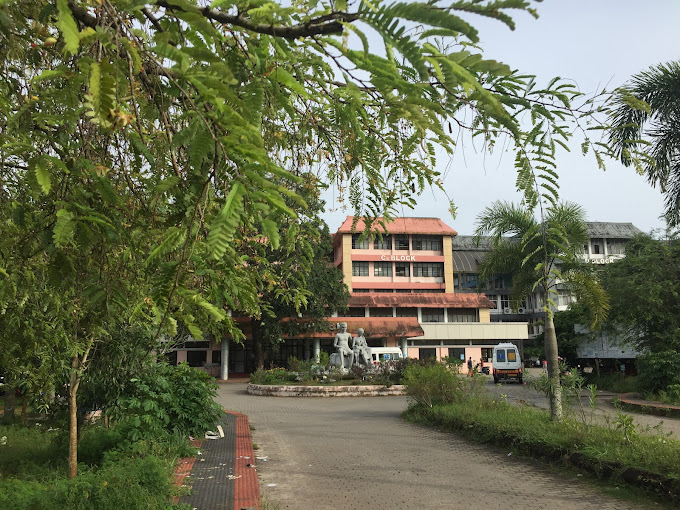60 Years of Alappuzha Medical College
The Thirumala Devaswom Medical College (TDMC) was established at Vandanam in Alappuzha on March 6, 1963, by R. Shankar, the state’s then-CM. During its 60 years of existence, it has triumphed over many obstacles and evolved into a premier institution. There were several roadblocks on the way from private administration to government takeover.
The Road to the Foundation of the Medical College
In response to the district’s need for a medical school, a panel of prominent people headed by Alappuzha MLA Nafeesath Beevi met with CM Pattom Thanu Pillai in February 1961.
But, the CM advised them that, due to financial limitations, the government was unable to establish a medical college. However, Mr. Pillai advised that K. Nagendra Prabhu, president of the Gowda Saraswath Brahmin community’s Alleppey Ananthanarayanapuram Thuravoor Thirumala Devaswom (AATTD), establish a private medical college.
The suggestion was welcomed by Mr.Prabhu, who founded multiple educational institutions in the region, and the proposal for TDMC, Kerala’s premier medical college run by a private organisation, was born.
On August 30, 1961, the government gave permission to establish a medical college. The 125 acres in Vandanam were acquired in the name of AATTD “Adhikari” Srinivasa Naick by the college administrative council.
“Mr. Naick was tight with Health Minister V.K. Velappan, which sped up the college’s inauguration. The first intake of MBBS students’ sessions started on August 17, 1963, five months after the cornerstone was placed on March 6, 1963. According to N. Gopinatha Prabhu, son of K. Nagendra Prabhu, “The AATTD sanctioned 25 lakhs to build the classrooms, labs, library, dorms, and other facilities.
Shifting of the Authority to the Government
Before the state’s political atmosphere shifted, everything was going smoothly. The University of Kerala and the Indian Medical Council “created the conditions adverse to the functioning of the college,” according to the Indian Medical Council.
“The college was forbidden from collecting capitation fees, and the fees were cut in half.” The administration broke its pledge to permit students to undertake clinical research at the District Hospital in Alappuzha. After K. Nagendra Prabhu’s death on June 2, 1965, things got worse, according to G. Nagendra Prabhu, secretary of the K. Nagendra Prabhu Foundation.
AATTD’s newly elected president, V. Kesava Pai, formed the TD Medical College Trust. On October 17, 1967, the trust headed by D. Narayana Pai and the state government inked a contract allowing the latter to run the establishment for a term of five years as the administration of the medical college became more and more challenging.
The government made an offer to the trust in 1972 to return management of the institution in exchange for a payment of Rs. 40 lakhs, which was ostensibly used for college administration. The K. Nagendra Prabhu Foundation claims that the government failed to transmit the audited statement of expenses to back up its claim. AATTD also asked the government to extend the time of administration by an additional five years, but the government declined.
“There were numerous debate rounds, but nothing significant was accomplished.” No response was sent to a letter the government issued to the chairman of the trust on May 21, 1973. The government then invoked Section 7 of the agreement and issued an order with a date of October 23, 1973. With effect from October 17, 1972, the college and all of its movable and immovable properties were “vested” in the Keralan government, according to
Mr. Nagendra Prabhu.
He states that the ideas of the privatized and assisted sectors to work in the domain of medical education had been denied by the then-politicians’ short-sighted approach.
“From 1965 to 1967, the college was run on a grant-in-aid basis for two years, with the government covering 60% of costs and the Thirumala Devaswom contributing 40%. If this had persisted, medical colleges would have been founded in the supported sector. Giving the nation’s deserving kids access to inexpensive medical education would have changed everything, according to Mr. Prabhu.






















